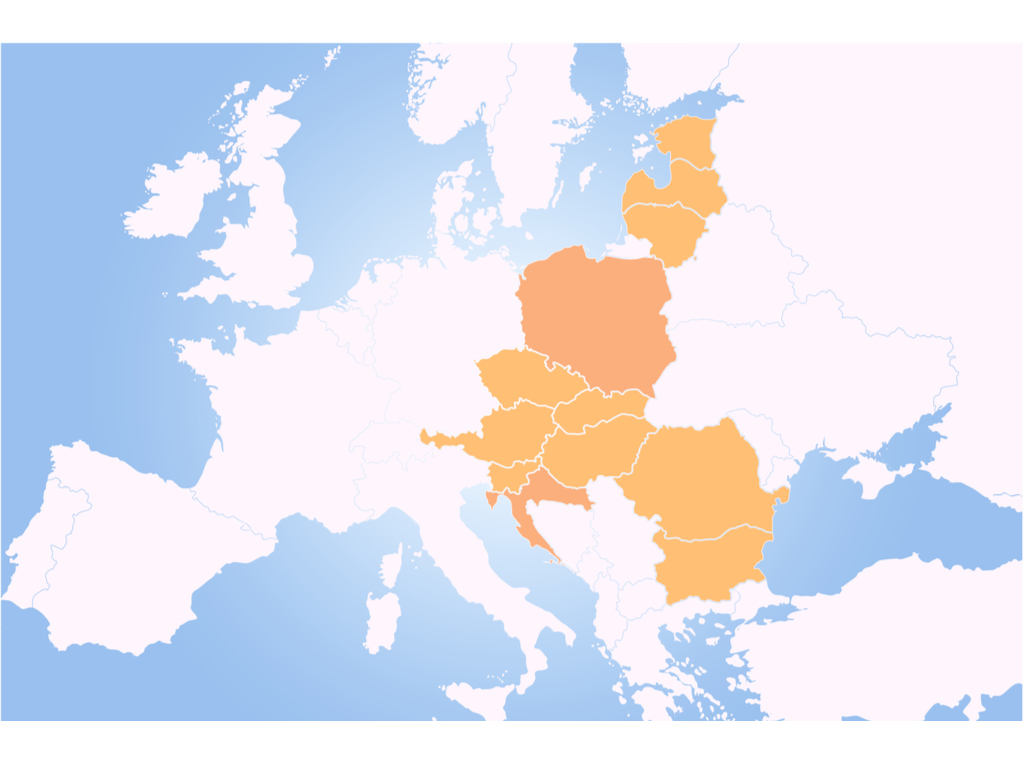Ambassador Valeri Chechelashvili, Executive Board member of GSAC
On May 30, the European Parliament issued the Report on security in the Eastern Partnership area and the role of the common security and defence policy. The document underlines that sustainable peace and human security in the EaP region is essential for the EU.
Among other things, the document admits that the Three Seas Initiative (3SI) can serve as one of the formats for using investment that promotes mutual security and stability in critical infrastructure. The European Parliament believes that the Three Seas Initiative (3SI) should be opened to include EaP countries. The report also welcomes the will to explore enhanced sectoral cooperation in the field of energy security with interested EaP-associated partners.
StrategEast interviewed key experts from EaP countries. Here are the comments from Georgia.
What kinds of sectoral cooperation with the EU could best preserve critical infrastructure and energy security in your country?
On February 24, Russia unleashed the third war in Europe in the 21st century. In 2008 it was Georgia, in 2014 – Ukraine, and finally in 2022 Ukraine again, invasion with the full power of conventional weapons.
As a result, we witness a dramatic transformation of the international relations network. As the main threat to the World order and the European security system, Russia is heading towards complete isolation.
Less and less legitimate cargo is generated in Russia, and less and less transit cargo goes through Russia. Russia’s share in the oil and gas trade is shrinking. The fact, that Russia is an unreliable partner, which uses energy resources as a method of political pressure has become clear to everyone, even to its most devoted partners in Europe. This new reality forces everybody to look for the least painful replacement of Russia’s role in two key areas: energy and transport.
In this light, the potential of the South Caucasus and Georgia, as its integral part, is more in demand. Transport and energy are two areas where Georgia, together with its strategic partners in the region – Azerbaijan, and Turkey, can play an important stabilizing role under the current conditions.
Transport: the Baku-Tbilisi-Kars railway is already operational, linking the railway systems of Europe and Central Asia with access to China; the motorway Baku-Tbilisi-Batumi-Ankara-Istanbul will soon become operational as well; with the support and development of Georgia’s port infrastructure and the organization of sea container transportation lines Poti, Batumi – Odessa, Varna, Constanta, the transport transit potential of Russia can be substituted.
Energy: Europe’s main problem is gas supply. It is necessary to find a replacement for about 150 billion cubic meters of gas, which this year will be supplied by Russia to Europe, including Turkey. Among the options for diversification is the Trans-Caspian pipeline, which can deliver between 30 and 60 billion cubic meters of gas to Europe. This gas can come from both Turkmenistan and the “Dostluk” Caspian field, which Turkmenistan and Azerbaijan have agreed to develop jointly.
The respective Memorandum of Understanding on joint exploration and development of the “Dostluk” hydrocarbon field was signed on January 21, 2021. It is also important that the Convention on the Legal Status of the Caspian Sea was signed on August 12, 2018. All signatories, apart from Iran, have already ratified the Convention.
It will be timely and useful to organize International Conference on the Trans-Caspian pipeline project with the participation of Turkmenistan, Azerbaijan, Georgia, Turkey, the EU, and the USA.
Do you believe that your country can benefit from entering the Three Seas Initiative?
The Three Seas Initiative is the format of the EU member states, which Ukraine has joined after the last Summit, as President of Ukraine V. Zelensky stated.
The Three Seas Initiative includes the Baltic, Mediterranean, and the Black Sea basins. Including Ukraine in the initiative is a step in the right direction. It increases the geopolitical value and attractiveness of the project. Georgia also sees itself as a natural part of this space. At the same time, the value of Georgia for the participants of the initiative increases qualitatively as a result of two factors:
- Georgia is a Black Sea state offering access to the Caspian Sea;
- Georgia is a member of a well-established mechanism of regional cooperation with its regional strategic partners (Azerbaijan, Georgia, Turkey).
Therefore, Georgia is interested to participate in the format of the Three Seas Initiative and can bring added value to it. At the same time, in the emerging geopolitical reality, the Four Seas (Three seas + the Caspian Sea) format would be much more interesting.




